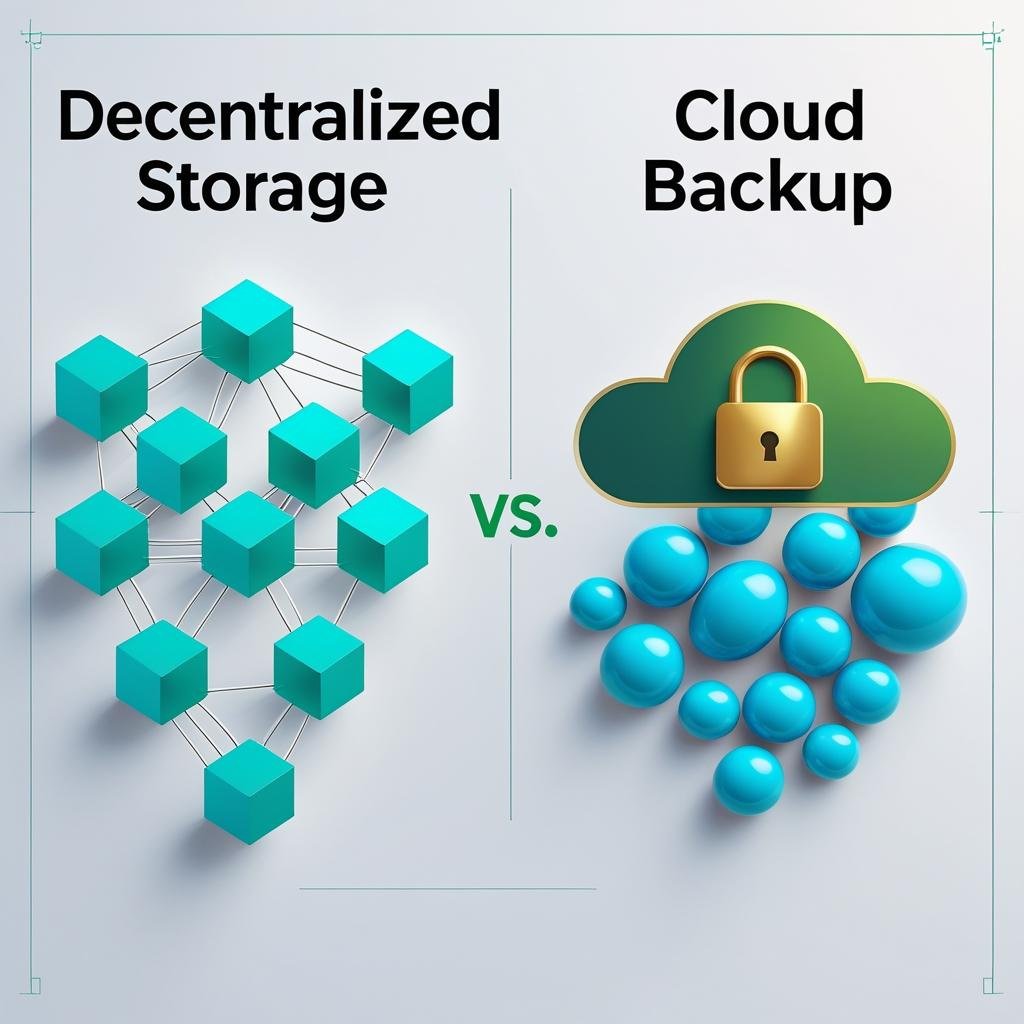In today’s digital age, data is one of the most valuable assets any business or individual can hold. As cyber threats, privacy concerns, and storage needs evolve, the conversation around Decentralized Storage vs Traditional Cloud Backup has become more crucial than ever. At Spread Safe, we dive into the key differences between these two solutions to help you make informed decisions on how best to safeguard your digital assets.
While traditional cloud backup services like Google Drive or Dropbox have been widely adopted, decentralized storage networks like IPFS, Filecoin, and Storj offer a radically different approach to data security, privacy, and control. Each method has its strengths, and understanding them is essential to ensure long-term protection and efficiency.
What is Traditional Cloud Backup?
Traditional cloud backup involves storing data on centralized servers owned and operated by companies such as Amazon (AWS), Microsoft (Azure), or Google (GCP). These providers manage everything from storage to encryption to uptime.
Key Features:
- Centralized control and maintenance
- Easy scalability and user access
- Managed security and compliance
- Monthly or annual subscription models
Use Case: Businesses backing up office documents, media files, databases, or SaaS applications.
What is Decentralized Storage?
Decentralized storage, on the other hand, uses blockchain-based or peer-to-peer networks where your data is fragmented, encrypted, and stored across multiple nodes around the world. No single entity controls your data.
Key Features:
- User ownership and control of data
- Fragmentation and redundancy for better protection
- No reliance on a central server
- Payments often in cryptocurrency or token models
Use Case: Developers, privacy-conscious users, and blockchain applications seeking censorship resistance and autonomy.
Security Comparison
| Feature | Traditional Cloud | Decentralized Storage |
| Control | Provider-managed | User-controlled |
| Encryption | Provider-level | End-to-end, user-based |
| Data Loss Risk | Lower with big providers | Very low due to redundancy |
| Privacy | Limited by provider policies | Full anonymity and ownership |
Traditional clouds provide robust security but often at the cost of user control. Decentralized options offer stronger ownership but may require more technical understanding.
Performance & Reliability
Traditional cloud offers faster upload/download speeds and stable performance due to established infrastructure.
Decentralized storage can vary in performance depending on network activity, but it excels in redundancy and distributed recovery.
Cost & Scalability
Cloud backup typically uses a pay-as-you-go model based on storage and bandwidth.
Decentralized storage often charges per transaction or storage duration and may use blockchain tokens.
While cloud is more user-friendly for businesses, decentralized storage can be cheaper in the long term for specific use cases.
Which One Should You Choose?
If you’re a small business or team looking for ease, traditional cloud backup is the right fit. But if you’re concerned with surveillance, censorship, or data sovereignty, decentralized storage could be the smarter alternative.
FAQs
Q1. What is the biggest benefit of decentralized storage?
A: Enhanced privacy and data control. Users own and manage their data, without centralized oversight.
Q2. Is decentralized storage safe for business use?
A: Yes, especially for privacy-focused operations. However, it may require technical expertise for integration.
Q3. Can I use both cloud backup and decentralized storage?
A: Absolutely. Many businesses adopt a hybrid model to combine reliability and privacy.
Q4. Is traditional cloud storage vulnerable to hacks?
A: While secure, centralized systems can be high-value targets for cybercriminals, making decentralized options more resilient in some cases.
Q5. Do decentralized platforms offer customer support?
A: Support may be limited compared to traditional providers. However, many communities and documentation sources are available online.
Conclusion
Choosing between Decentralized Storage vs Traditional Cloud Backup is less about which is “better” and more about what your priorities are control or convenience. Traditional clouds remain dependable, scalable, and easy to use, while decentralized systems offer unmatched privacy, data sovereignty, and transparency.
At Spread Safe, we believe in educating our readers on the evolving landscape of digital security. Whatever method you choose, make sure it aligns with your long-term privacy, control, and reliability needs.




